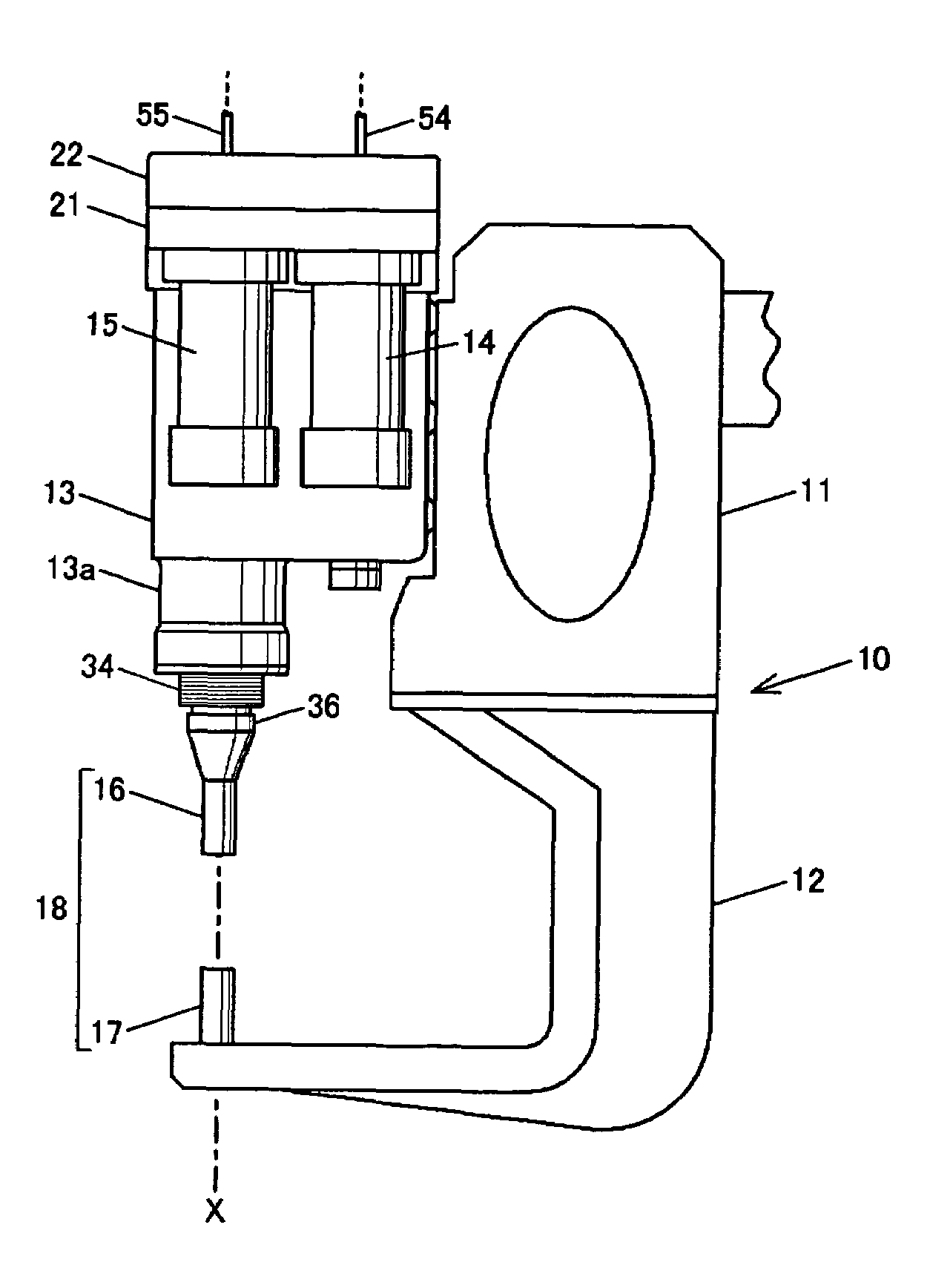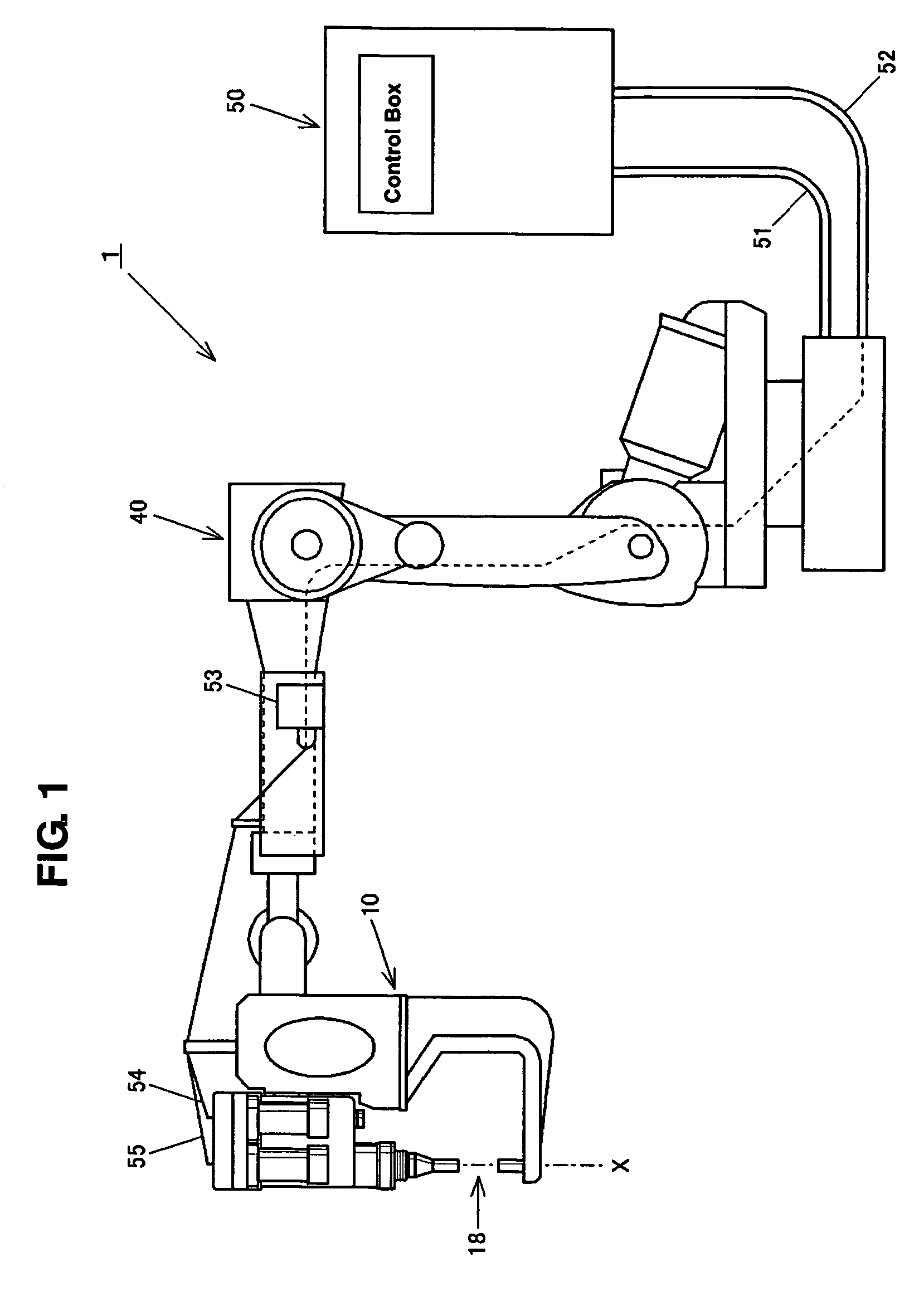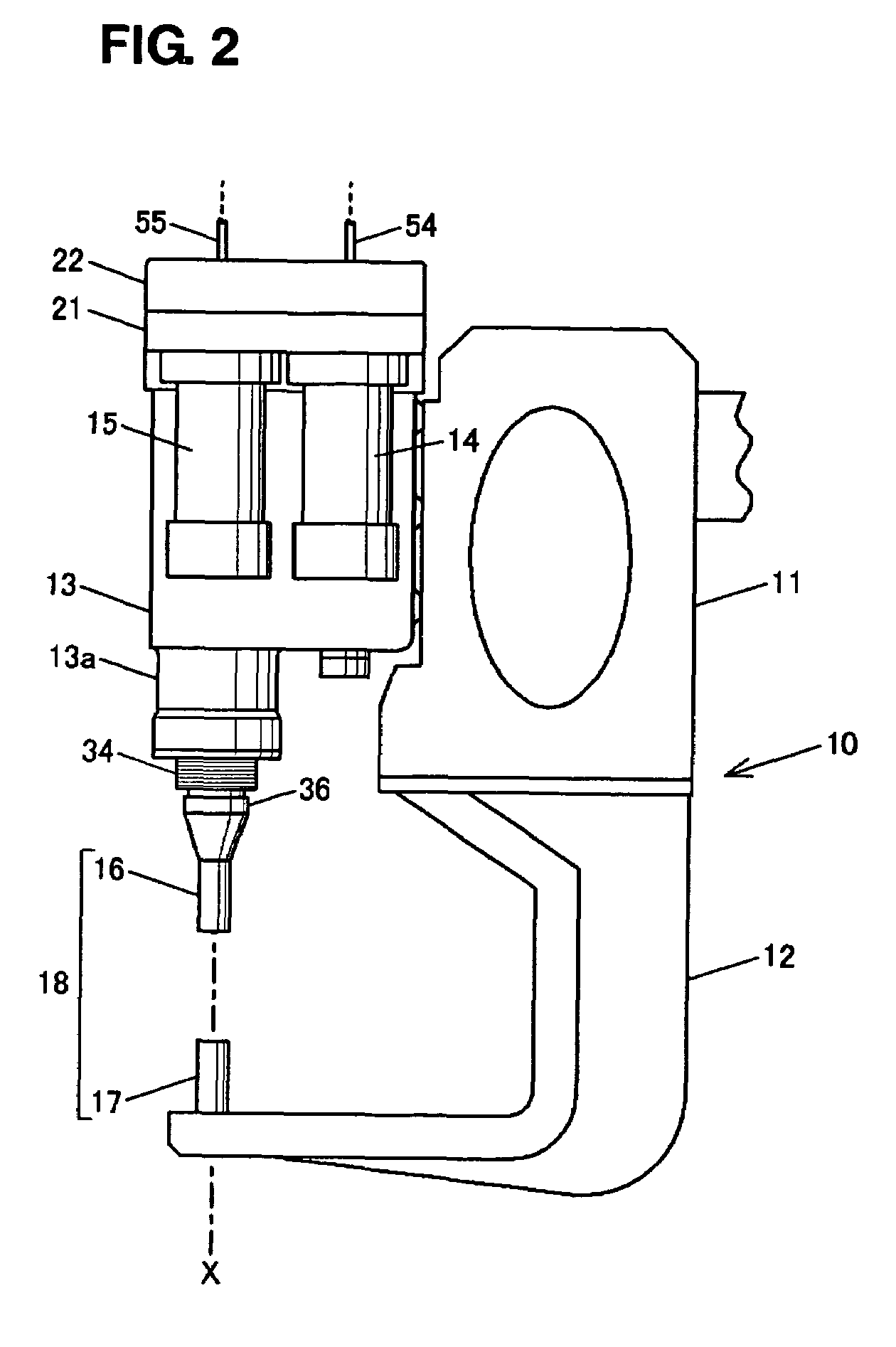Frictional spot joining method and frictional spot joining apparatus
a friction spot and joining method technology, applied in the field of frictional jointing, can solve the problems of reduced galvanic corrosion or joining strength, reduced thickness of aluminum existing between the tip of the rotational tool and the lower steel plate, and torn aluminum plate off, etc., to ensure the joining strength, reduce the effect of agitation and sufficient time of agitation
- Summary
- Abstract
- Description
- Claims
- Application Information
AI Technical Summary
Benefits of technology
Problems solved by technology
Method used
Image
Examples
Embodiment Construction
[0049]Hereinafter, a preferred embodiment will be described referring to the accompanying drawings. FIG. 1 is a schematic elevation view of a frictional spot joining apparatus 1 according to the present embodiment. The frictional spot joining apparatus 1 is used for joining of aluminum members or a aluminum member and a steel member of, for example, a body of an automotive vehicle and the like. This apparatus comprises a joining gun 10 and a robot 40 having the joining gun 10 at its hand as a major component. A six-axis multiple-articulated type of robot which has been used widely may be preferably used as the robot 40.
[0050]As illustrated in FIGS. 2 and 3, the joining gun 10 comprises an attaching box 11 attached to the robot 40, a L-shaped arm 12 extending downward from the bottom of the attaching box 11, a body case 13 fixed to the side of the attaching box 11 above the arm 12, a pressing motor 14, and a rotating motor 15. At the lower end of the body case 13 is provided a rotati...
PUM
| Property | Measurement | Unit |
|---|---|---|
| pressing force | aaaaa | aaaaa |
| pressing force | aaaaa | aaaaa |
| pressing force | aaaaa | aaaaa |
Abstract
Description
Claims
Application Information
 Login to View More
Login to View More - R&D
- Intellectual Property
- Life Sciences
- Materials
- Tech Scout
- Unparalleled Data Quality
- Higher Quality Content
- 60% Fewer Hallucinations
Browse by: Latest US Patents, China's latest patents, Technical Efficacy Thesaurus, Application Domain, Technology Topic, Popular Technical Reports.
© 2025 PatSnap. All rights reserved.Legal|Privacy policy|Modern Slavery Act Transparency Statement|Sitemap|About US| Contact US: help@patsnap.com



